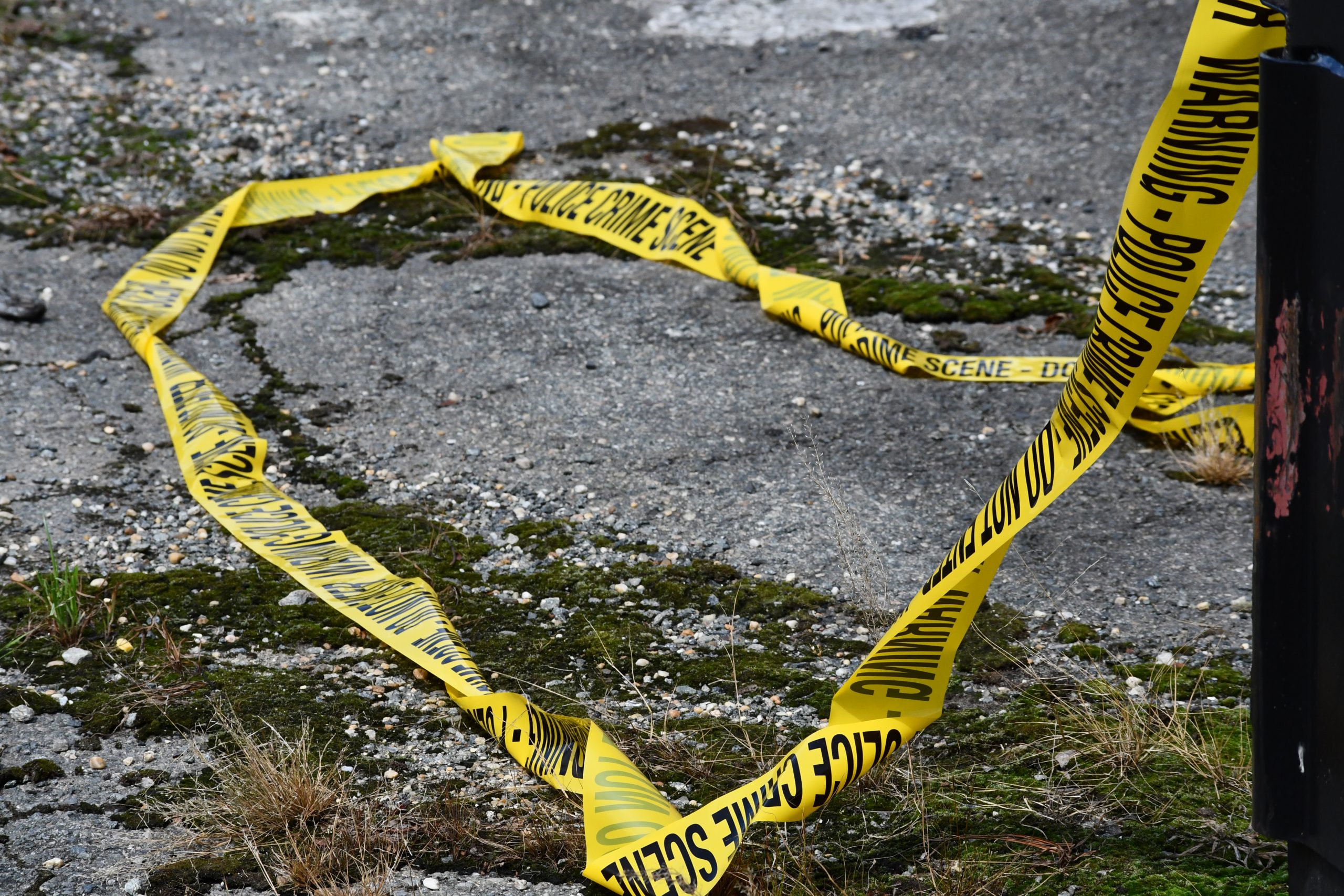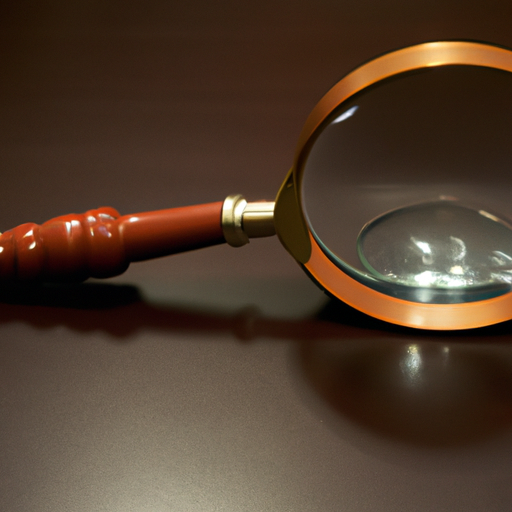In the field of criminal law, every case warrants a thorough and robust investigation. This is where the expertise of a criminal defense investigator becomes invaluable. By delving into the intricacies of a case, a skilled investigator can uncover crucial evidence, identify potential witnesses, and provide the defense team with vital information to challenge the prosecution’s claims. In this article, we will explore the importance of criminal defense investigation and how it plays a pivotal role in ensuring a fair and just legal process. By understanding the nature of this critical aspect of criminal defense, you will be better equipped to navigate the complexities of the legal system and secure the best possible outcome for your case.
Criminal Defense Investigation
Criminal defense investigation plays a crucial role in the legal system, as it serves to protect the rights of individuals facing criminal charges. By conducting a comprehensive investigation, a criminal defense investigator can gather evidence, interview witnesses, review police reports, examine physical and forensic evidence, utilize expert witnesses, and ultimately challenge the prosecution’s case. In this article, we will explore the importance of criminal defense investigation, the role of a criminal defense investigator, and the steps involved in conducting a thorough investigation.
Importance of Criminal Defense Investigation
The importance of criminal defense investigation cannot be overstated. It acts as a critical safeguard against wrongful convictions and ensures that the principles of justice are upheld. A thorough investigation allows for the identification of exculpatory evidence, which can prove a defendant’s innocence or cast doubt on the prosecution’s case.
Investigating a criminal defense case requires a meticulous approach, attention to detail, and a deep understanding of the law. It is not enough for a defense attorney to rely solely on the information provided by the prosecution; a thorough investigation is necessary to challenge their evidence and narratives effectively.
Role of a Criminal Defense Investigator
A criminal defense investigator plays a vital role in supporting the defense attorney and building a strong defense strategy. They possess specialized skills and knowledge in conducting investigations, which can be instrumental in uncovering crucial evidence and identifying potential weaknesses in the prosecution’s case.
The primary responsibilities of a criminal defense investigator include:
-
Gathering evidence: A seasoned investigator knows where to look for evidence and how to obtain it legally. They meticulously comb through various sources such as surveillance footage, phone records, financial records, and other relevant documents to uncover facts that may support the defense.
-
Interviewing witnesses: Witnesses play a critical role in criminal defense cases. A skilled investigator interviews witnesses to gather their testimonies, identify inconsistencies, and uncover any information that may strengthen the defense’s position.
-
Reviewing police reports: Police reports serve as the foundation for many criminal cases. A thorough review of these reports allows investigators to identify potential biases, errors, or omissions that may help the defense challenge the prosecution’s version of events.
-
Examining physical evidence: Forensic analysis of physical evidence, such as DNA, fingerprints, or weapons, can provide valuable insights into a case. A criminal defense investigator collaborates with forensic experts to analyze and interpret such evidence, searching for any inconsistencies or alternate explanations.
-
Analyzing forensic evidence: In cases involving complex forensic evidence, such as ballistics or toxicology reports, a criminal defense investigator assists the defense team by analyzing the technical aspects of the evidence. This analysis can reveal flaws or weaknesses in the prosecution’s interpretation of the evidence.
-
Utilizing expert witnesses: Expert witnesses offer specialized knowledge and opinions that can be critical in challenging the prosecution’s case. A criminal defense investigator works closely with these experts to ensure that their findings and testimonies are presented effectively in court.

Steps in a Criminal Defense Investigation
A criminal defense investigation involves several key steps that contribute to building a strong defense. To ensure a comprehensive investigation, the following steps are typically followed:
-
Initial case assessment: The investigator meets with the defense attorney to discuss the details of the case, review available evidence, and identify potential leads for further investigation.
-
Information gathering: The investigator conducts extensive research, gathering background information about the defendant, the alleged crime, and the individuals involved. This includes examining public records, reviewing prior convictions (if any), and exploring any relevant connections or relationships.
-
Identifying and interviewing witnesses: The investigator compiles a list of potential witnesses and conducts interviews to gather their testimonies. These interviews aim to uncover new information, verify existing facts, and identify any inconsistencies or discrepancies.
-
Reviewing documentation: The investigator meticulously reviews police reports, medical records, forensic reports, and any other relevant documentation related to the case. This helps to identify potential errors, biases, or missing information that may be advantageous to the defense.
-
Collecting physical and forensic evidence: The investigator works in collaboration with forensic experts to collect and analyze physical evidence, such as DNA samples, fingerprints, or weapons. This step often involves coordinating with laboratories and ensuring the chain of custody is properly maintained.
-
Engaging expert witnesses: If the case requires specialized knowledge or scientific interpretation, the investigator collaborates with expert witnesses in relevant fields. These experts can lend credibility to the defense’s position and provide testimony that challenges the prosecution’s case.
-
Challenging prosecution’s case: Based on the evidence and findings from the investigation, the defense team develops strategies to challenge the prosecution’s case. This may involve presenting alternative theories, discrediting witnesses, or highlighting procedural errors.
Gathering Evidence
One of the primary objectives of a criminal defense investigation is gathering evidence that can help substantiate the defense’s position. This includes locating and collecting physical evidence, documents, and other relevant materials that can support the defense’s arguments. By conducting a comprehensive investigation, a criminal defense investigator can ensure that no stone is left unturned and all available evidence is considered.
Interviewing Witnesses
Witness testimonies can make or break a case, which is why interviewing witnesses is a crucial step in a criminal defense investigation. A skilled investigator knows how to approach witnesses, elicit valuable information, and evaluate the credibility of their statements. Through careful questioning and attentive listening, a criminal defense investigator can uncover new leads, identify inconsistencies, and provide crucial support to the defense team.
Reviewing Police Reports
Police reports form the foundation of many criminal cases, and reviewing them is a critical part of a defense investigation. By thoroughly examining these reports, a criminal defense investigator can identify potential biases, inaccuracies, or other issues that may undermine the prosecution’s case. This thorough review helps the defense team build a strong defense strategy and challenge the prosecution’s narrative effectively.

Examining Physical Evidence
Physical evidence can provide crucial insights into a criminal case. Whether it is DNA samples, fingerprints, or weapons, a criminal defense investigator works closely with forensic experts to collect and analyze physical evidence. Their expertise in examining physical evidence helps the defense team uncover inconsistencies, challenge the prosecution’s interpretation of the evidence, and strengthen the defense’s position.
Analyzing Forensic Evidence
In cases involving complex forensic evidence, the analysis of such evidence can be instrumental in building a strong defense. A criminal defense investigator collaborates with forensic experts to analyze technical aspects of the evidence, such as ballistics or toxicology reports. This analysis aims to identify any flaws, weaknesses, or alternate explanations that can be presented to challenge the prosecution’s case.

Utilizing Expert Witnesses
Expert witnesses bring specialized knowledge and expertise to a criminal defense case. They can provide opinions and testimony that challenge the prosecution’s case and lend credibility to the defense’s position. A criminal defense investigator plays a vital role in identifying and engaging expert witnesses, ensuring that their findings are effectively presented in court and contribute to the defense strategy.
Challenging the Prosecution’s Case
Through a thorough investigative process, a criminal defense investigator helps the defense team identify weaknesses or inconsistencies in the prosecution’s case. By challenging the prosecution’s evidence, witnesses, and narratives, the defense can cast doubt on the prosecution’s claims and present alternative theories or explanations. This critical component of a criminal defense investigation is instrumental in securing a favorable outcome for the defendant.
Conclusion
A comprehensive criminal defense investigation is an essential aspect of protecting the rights of individuals facing criminal charges. By conducting a thorough investigation, gathering evidence, interviewing witnesses, reviewing police reports, examining physical and forensic evidence, utilizing expert witnesses, and challenging the prosecution’s case, a criminal defense investigator plays a crucial role in building a strong defense strategy. It is through this diligent investigative process that the principles of justice and fairness are upheld, ensuring that individuals have a fair chance at defending themselves against criminal accusations.
FAQs:
-
Why is a criminal defense investigation important? A criminal defense investigation is vital as it helps uncover evidence that supports the defendant’s innocence or casts doubt on the prosecution’s case. It can prevent wrongful convictions and protect the principles of justice.
-
What is the role of a criminal defense investigator? A criminal defense investigator supports the defense attorney by gathering evidence, interviewing witnesses, reviewing police reports, examining physical and forensic evidence, utilizing expert witnesses, and challenging the prosecution’s case.
-
What steps are involved in a criminal defense investigation? A criminal defense investigation typically involves an initial case assessment, information gathering, witness interviews, reviewing documentation, collecting physical and forensic evidence, engaging expert witnesses, and challenging the prosecution’s case.
-
How can a criminal defense investigator challenge the prosecution’s case? A criminal defense investigator can challenge the prosecution’s case by presenting alternative theories, discrediting witnesses, highlighting procedural errors, and providing evidence or expert testimony that contradicts the prosecution’s claims.
-
Why is it important to review police reports in a criminal defense investigation? Reviewing police reports allows the defense team to identify potential biases, inaccuracies, or missing information that may be advantageous to the defense. It helps build a strong defense strategy and challenge the prosecution’s narrative effectively.



